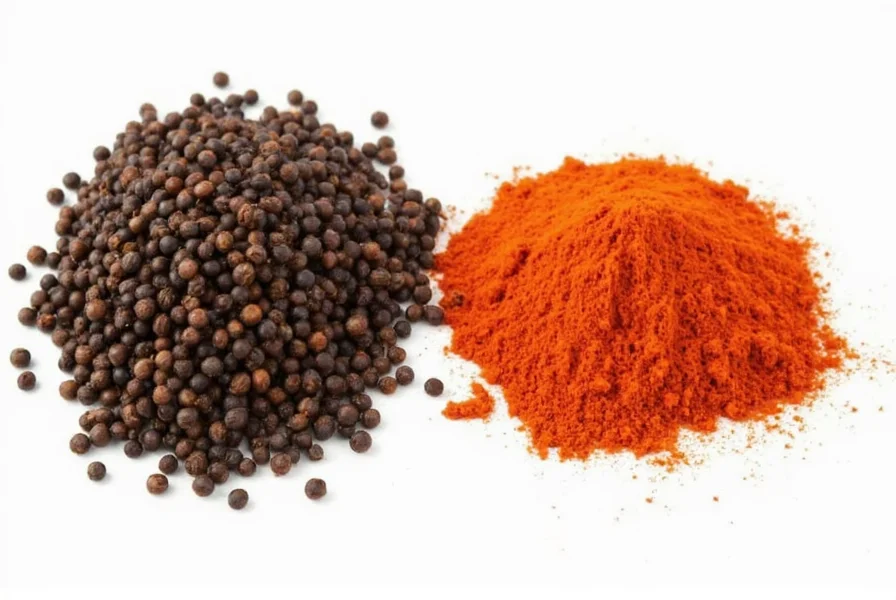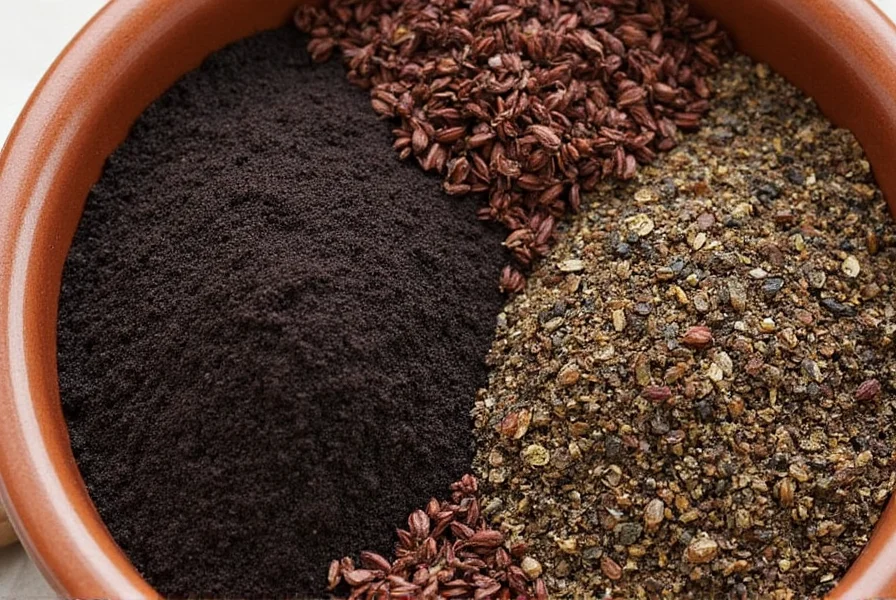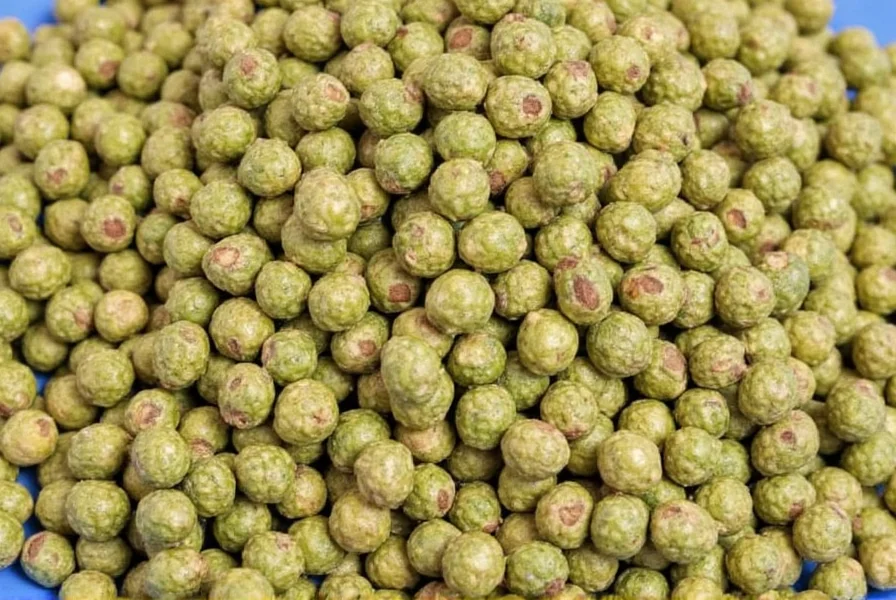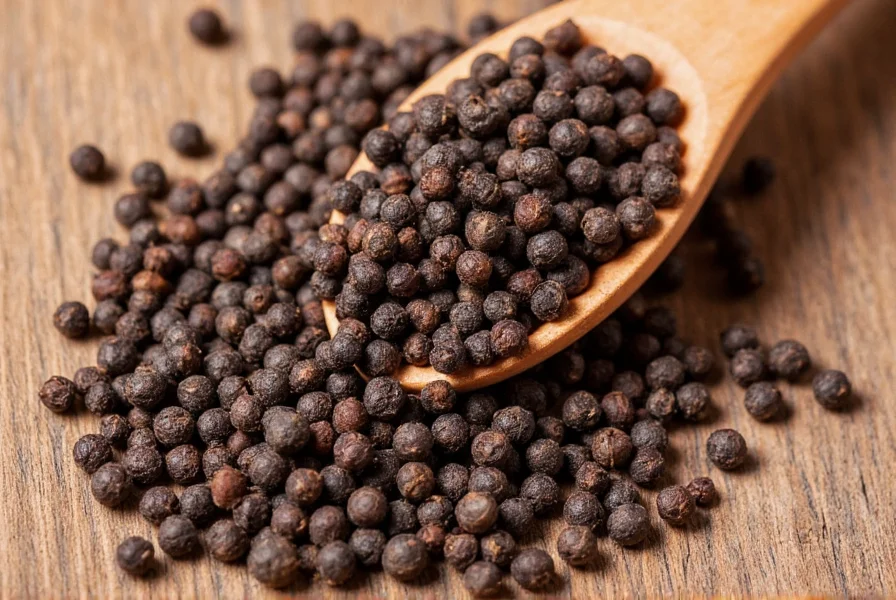Table of Contents
- 1. Key Health Benefits of Black Pepper
- 2. Why Black Pepper is Called the "King of Spices"
- 3. Practical Usage Tips for Maximum Benefits
- 4. Expert Buying Guide for Black Pepper
- 5. Frequently Asked Questions (FAQ)
- 6. Conclusion
Black pepper is scientifically proven to enhance nutrient absorption by up to 2000%, support digestion, and provide potent antioxidant protection. Its active compound piperine delivers these benefits while adding depth to culinary dishes. This guide covers evidence-based health advantages and expert recommendations for selecting the best quality black pepper.
1. Key Health Benefits of Black Pepper
| Benefit | Description |
|---|---|
| Enhanced Nutrient Absorption | Piperine increases bioavailability of nutrients like curcumin by up to 2000% (National Institutes of Health). It also improves absorption of vitamins B6, C, and selenium. |
| Digestive Support | Stimulates hydrochloric acid production in the stomach, reducing bloating and improving nutrient breakdown. |
| Antioxidant Protection | Fights free radicals and reduces oxidative stress, linked to chronic disease prevention (Journal of Medicinal Food). |

2. Why Black Pepper is Called the "King of Spices"
Black pepper earns its royal title through three key attributes:
- Flavor Versatility: Enhances both savory and sweet dishes with its sharp, earthy notes.
- Historical Value: Traded as currency in ancient times—more valuable than gold in some regions.
- Scientifically Validated Benefits: Backed by clinical studies for health applications.
3. Practical Usage Tips for Maximum Benefits
- Always Freshly Ground: Grind peppercorns immediately before use to preserve volatile oils and potency.
- Add Late in Cooking: Introduce black pepper during the final 5 minutes of cooking to retain flavor compounds.
- Strategic Pairing: Combine with turmeric (2000% absorption boost), garlic, or lemon for synergistic effects.
Example: Sprinkle freshly ground black pepper over tomato soup to elevate its flavor profile and enhance lycopene absorption.

4. Expert Buying Guide for Black Pepper
Types of Black Pepper
- Tellicherry: Large peppercorns from India with robust flavor. Ideal for gourmet dishes and steak seasoning.
- Lampong: Indonesian variety with subtle sweetness and lingering heat. Perfect for barbecue rubs and soups.
- Sarawak: Malaysian origin with fruity aroma and mild heat. Best for desserts and fruit-based dishes.
Key Selection Criteria
- Origin Matters: Indian Tellicherry offers intensity; Indonesian Lampong provides balance; Malaysian Sarawak delivers complexity.
- Whole vs. Ground: Always choose whole peppercorns for freshness—ground pepper loses potency within 4 months.
- Storage Requirements: Keep in airtight containers away from light, heat, and moisture. Never refrigerate.
Quality Verification
Check for uniform color and aroma. Authentic Tellicherry has larger peppercorns (over 4mm) with a strong, complex scent. Lampong should have a slightly sweet fragrance without harshness.

5. Frequently Asked Questions (FAQ)
Q: What makes black pepper different from white or green pepper?A: All come from Piper nigrum, but processing differs. Black pepper uses sun-dried unripe berries (bold flavor), white pepper uses ripe berries with outer layer removed (milder taste), and green pepper is freeze-dried or brine-preserved (fresh herbal notes).
Q: How does black pepper boost nutrient absorption?A: Piperine inhibits liver metabolism of nutrients like curcumin, increasing bioavailability by up to 2000% (NIH studies). It also enhances absorption of vitamins B6, C, and selenium by slowing gut metabolism.
Q: Can black pepper help with weight management?A: Yes. Research in the Journal of Medicinal Food shows piperine inhibits fat cell formation and improves lipid metabolism. Thermogenic properties support calorie burning when combined with diet and exercise.
Q: What’s the best way to store black pepper for maximum freshness?A: Store whole peppercorns in airtight glass containers away from light and heat. Avoid refrigeration (humidity degrades flavor). Whole peppercorns stay fresh 2-3 years; ground pepper loses potency in 4-6 months.
Q: Is black pepper safe for daily consumption?A: Yes for most people at culinary doses (1-2 teaspoons daily). Those with gastrointestinal ulcers or on blood-thinning medication should consult a doctor due to potential digestive irritation or medication interactions.
6. Conclusion
Black pepper is far more than a simple seasoning—it's a scientifically validated powerhouse with proven health benefits and culinary versatility. By selecting high-quality whole peppercorns and using them strategically, you maximize both flavor and nutritional advantages in every dish.











 浙公网安备
33010002000092号
浙公网安备
33010002000092号 浙B2-20120091-4
浙B2-20120091-4